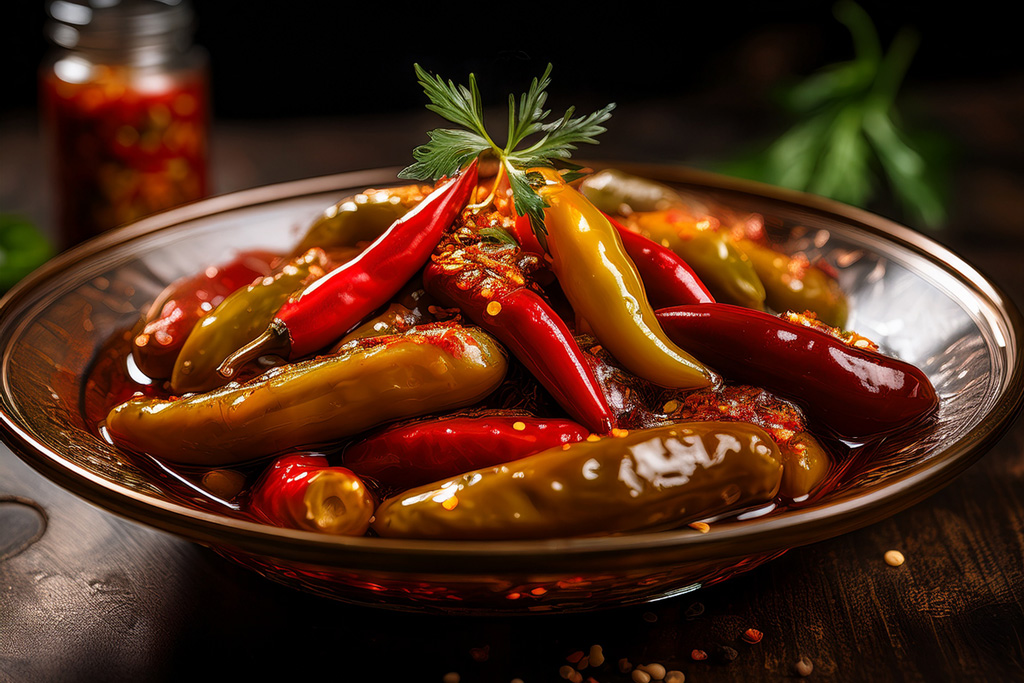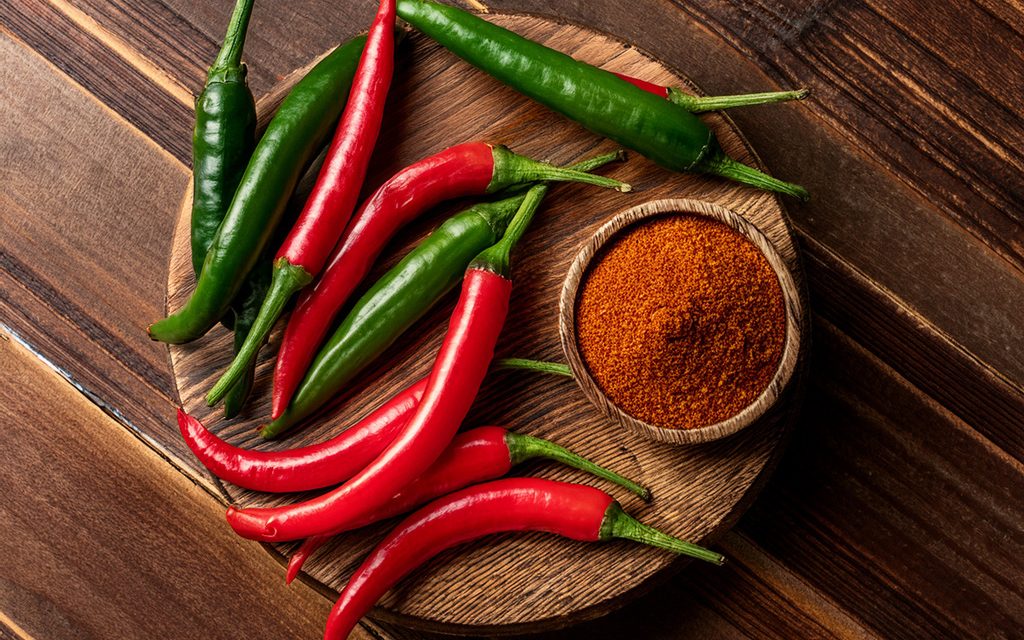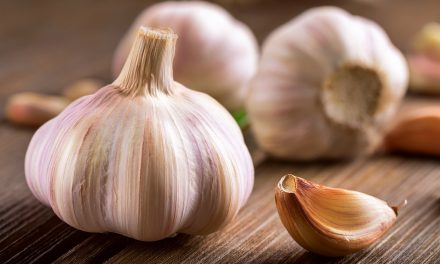What is Chili?
Tiny but mighty, the chili packs a punch! This vibrant fruit — yes, it’s technically a fruit — is loved around the world for adding heat and flavor to food. Whether you like a mild tingle or a scorching blaze, there’s a chili for every tastebud.
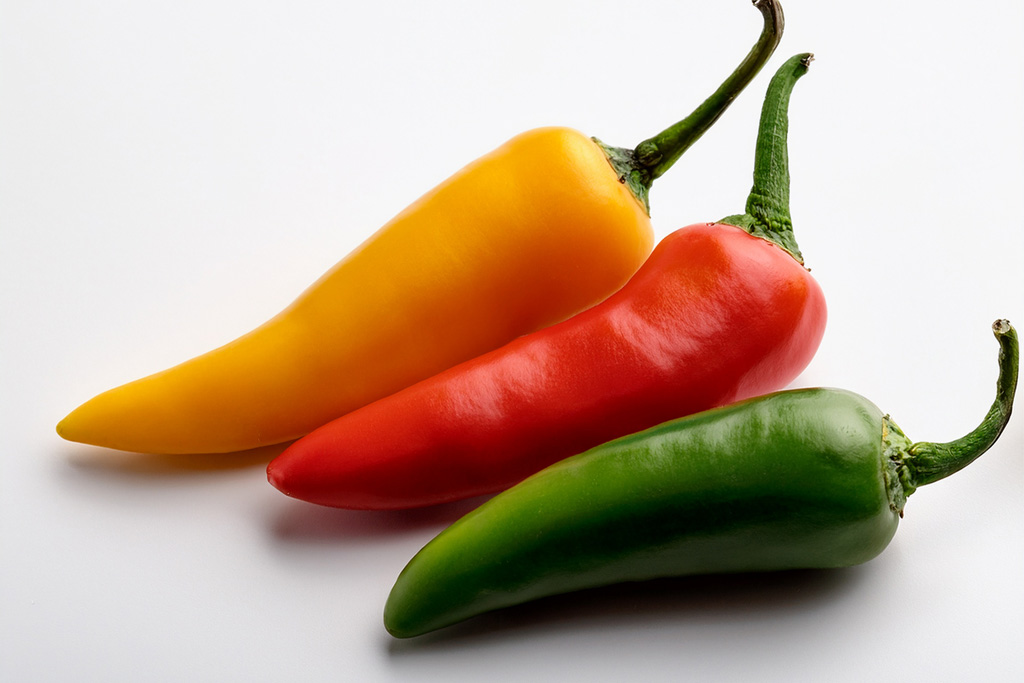
Scientific Name
The general scientific name is Capsicum annuum, but there are many varieties under the Capsicum genus, from bell peppers to the blazing Carolina Reaper!

Common Forms
Chilies come fresh, dried, powdered, flaked, or pickled. You’ll find them whole in curries, minced into sauces, ground into chili powder, or fermented into hot sauce. Some are tiny and fiery, others are large and mild — there’s a whole rainbow to choose from.
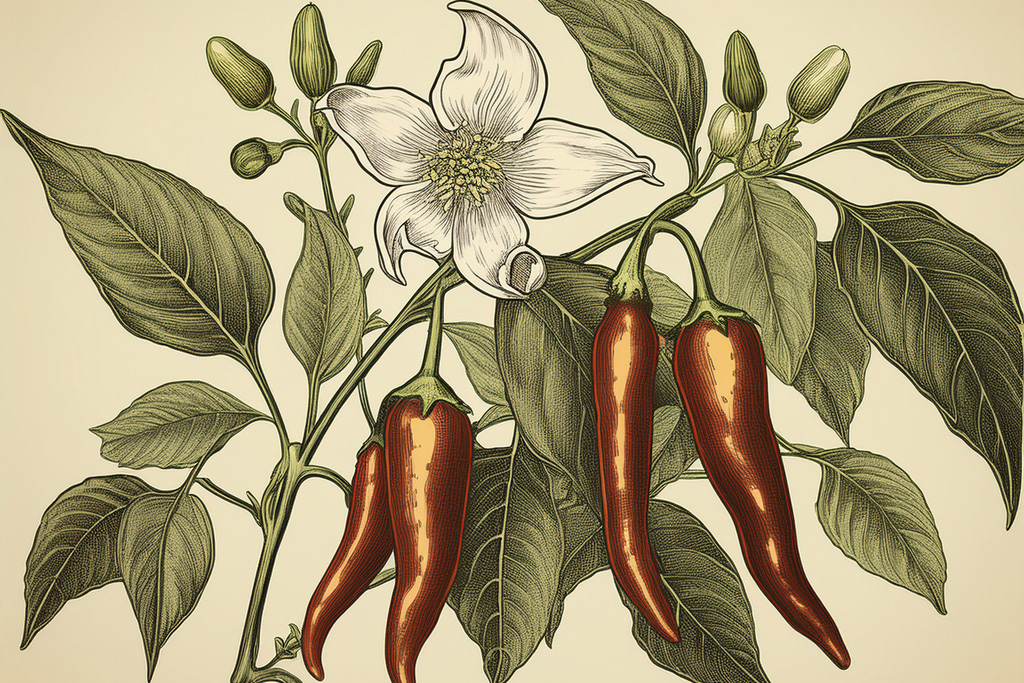
Where Did Chili Come From?
Chilies are native to Central and South America. Archaeologists believe people have been cultivating and munching on chilies for over 6,000 years! They spread worldwide when explorers like Christopher Columbus carried them to Europe, Asia, and Africa.

A Sizzling History
After their journey from the Americas, chilies caught fire in Asia — literally and culturally. They quickly became a staple in India, Thailand, China, and many other cuisines. Today, over a third of the world’s population eats chilies daily!
Health Benefits
Chilies are rich in vitamin C and antioxidants. The compound capsaicin — the one that makes your mouth burn — may help boost metabolism, ease pain, and even lift your mood by triggering endorphins (those happy hormones).
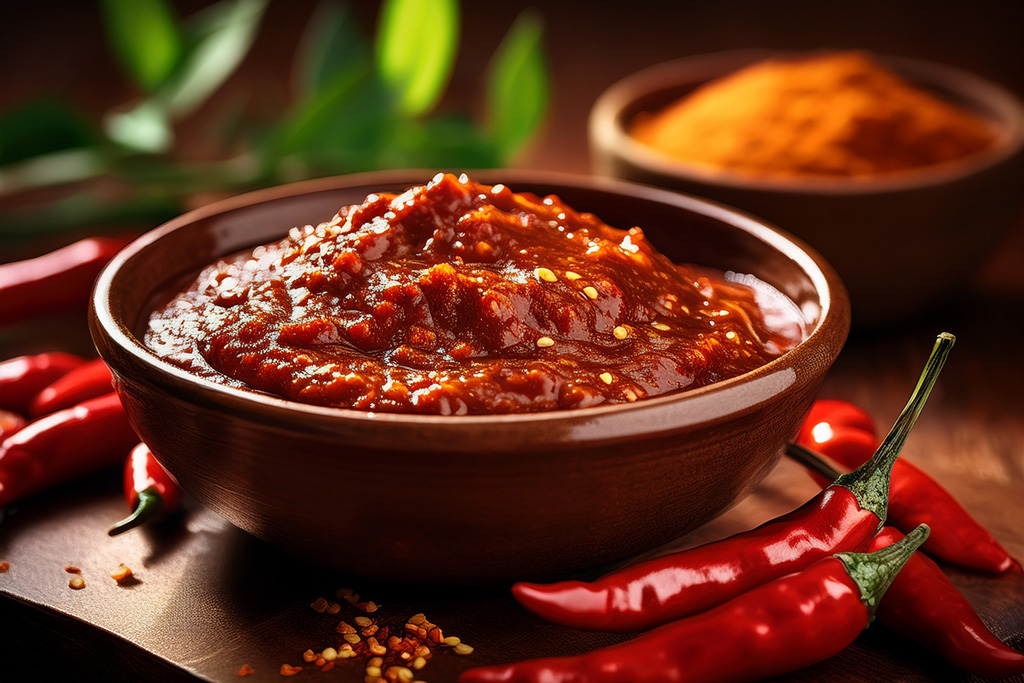
Traditional Uses
In traditional remedies, chilies have been used to aid digestion, treat colds, and make warming balms for sore muscles. Many cultures swear by chili-infused oils to ease aches and boost circulation.
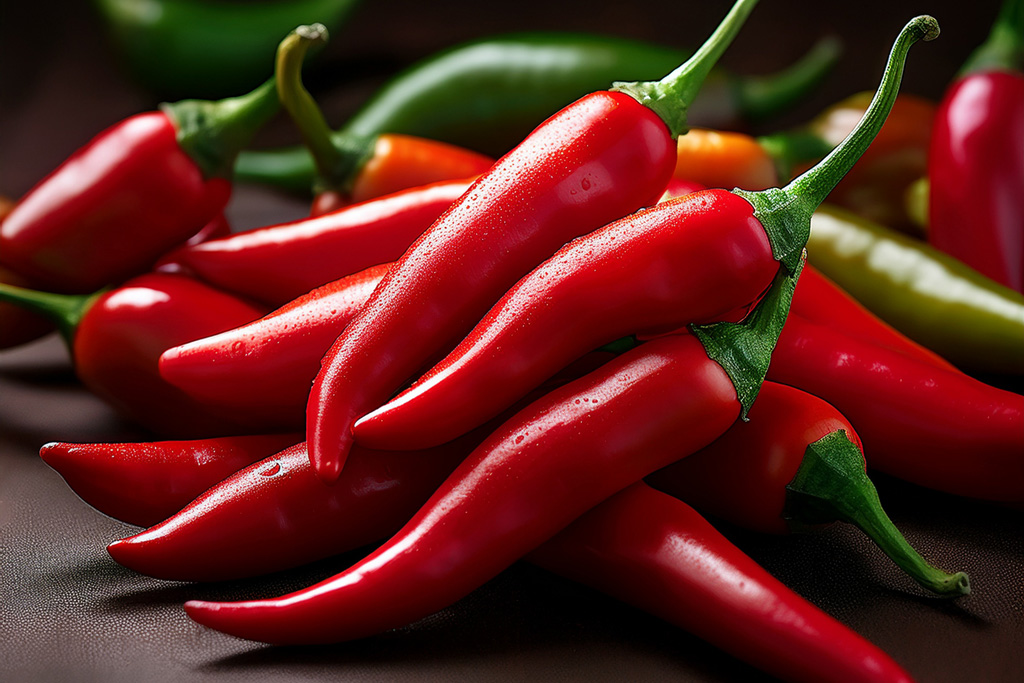
Modern Uses
Modern kitchens put chilies everywhere — in sambals, salsas, marinades, BBQ rubs, snacks, and spicy chocolate! Beyond the kitchen, capsaicin is extracted for creams that soothe joint pain and muscle aches.
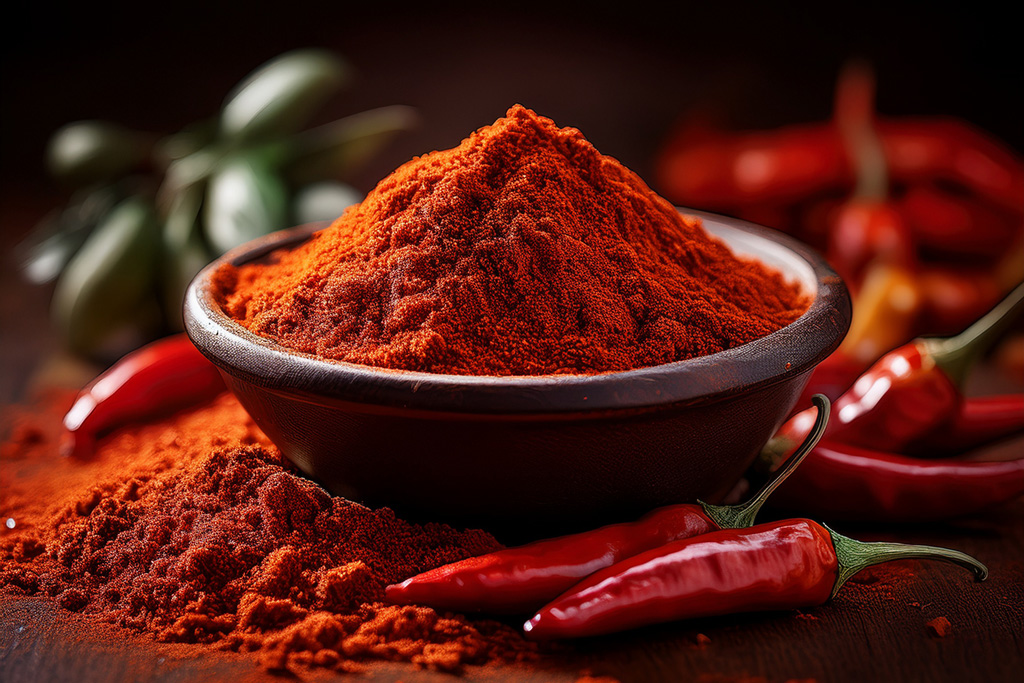
Medical Uses
Capsaicin creams are used today to help relieve nerve pain and arthritis. Some studies link chili consumption with improved heart health and weight management — but moderation is key, of course!
